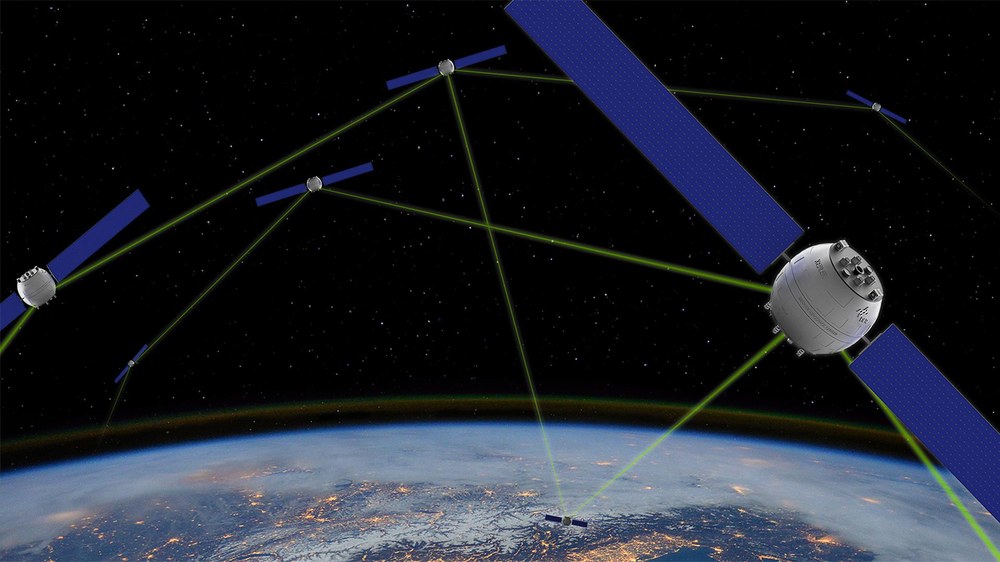Communication, Navigation and Quantum Technology
Modern societies depend on the availability of modern communications and navigation infrastructure. The networked processes in industry, trade and transport require spatially and temporally unrestricted and secure access to the latest data and information in order to produce and offer their goods and services cost-effectively. Digital communications, navigation services and access to other data, information, services, and entertainment programmes have also become commonplace in the private sector.
DLR concentrates its research and development on satellite-based systems and processes that enable widespread, comprehensive, independent and secure access to communications and navigation services.
In order to offer the necessary bandwidths and access times, DLR is promoting the development and use of optical communications technologies, both for the communication between a central network and satellites (feeder links) and for direct user connections. As a prerequisite for future use, DLR is conducting basic research on optical signal propagation in the atmosphere and developing secure and effective encoding methods for optical data transmission.
Satellite-supported navigation will become an essential element of semi-autonomous and autonomous mobility in the future. This will require reliable worldwide access to and high spatial accuracy and integrity of the position information. Key technologies such as high-precision and time-stable clocks are being developed and tested at DLR and qualified for the new Galileo satellites. The new research funded in the programme, and selected experiments in the field of quantum technologies, are promising additions to the design of communications and navigation systems. The initial research approaches also offer the potential for the development of completely new solutions and applications.

